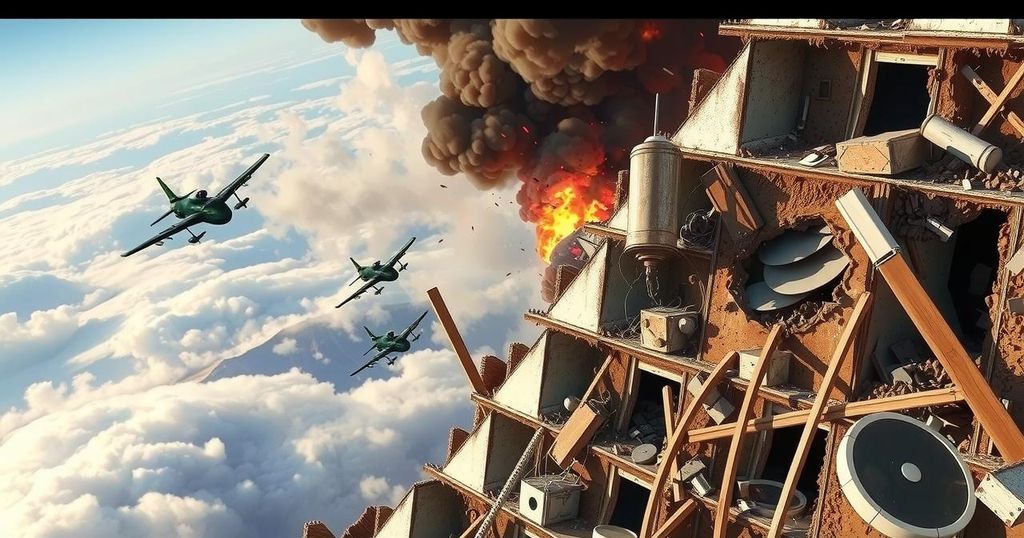Israeli air strikes have claimed over 100 lives in Gaza and Lebanon, with significant fatalities reported in the Shati refugee camp and across the besieged northern areas of Gaza. In Lebanon, at least 53 people have died from Israeli attacks, and six Malaysian peacekeepers were injured. Ireland’s foreign minister has announced plans to support a case against Israel at the International Court of Justice, while Israel bolsters its defense capabilities with a $5.2 billion deal for advanced aircraft.
Recent Israeli air strikes have resulted in significant civilian casualties, with reports indicating over 100 deaths across Gaza and Lebanon. In Gaza City’s Shati refugee camp, 12 individuals were killed when Israeli bombers targeted a school sheltering displaced persons. Furthermore, medical sources have confirmed that more than 50 Palestinians have lost their lives due to Israeli bombardments, predominantly in the besieged northern regions of the territory. In Lebanon, government authorities report that Israeli forces have killed at least 53 individuals and injured 161 in various attacks within the past 24 hours. Notably, a drone strike in Sidon near Saida Stadium injured six Malaysian peacekeepers with the UN Interim Force, resulting in the deaths of three other individuals. Yoav Gallant, Israel’s recently dismissed Defense Minister, has cautioned that the ongoing military engagement in Gaza may result in severe repercussions for the nation and expressed uncertainty regarding Prime Minister Netanyahu’s willingness to engage in ceasefire negotiations. On the international front, Ireland plans to support South Africa’s case against Israel at the International Court of Justice by year-end. Israel’s Defense Ministry has also announced a substantial acquisition of 25 advanced U.S.-made F-15 aircraft, valued at $5.2 billion. Amidst these developments, Al Jazeera continues to provide live updates and analyses of the situation in Gaza, Lebanon, and Iran.
The ongoing conflict between Israel and various groups in Gaza and Lebanon has escalated recently, leading to significant military actions from the Israeli armed forces. Tensions have been heightened due to military operations aimed at neutralizing perceived threats from militant groups in these regions, which has sadly resulted in high civilian casualties and condemnation from the international community. The humanitarian impact of these military actions is profound, drawing attention from various countries and international organizations. This recent upsurge in violence has coincided with political movements within Israel and statements from government officials, highlighting the complexity of the situation. Additionally, international responses to the conflict, such as Ireland’s intention to challenge Israel at the International Court of Justice, illustrate the broader geopolitical implications of the ongoing violence.
In summary, the recent Israeli air strikes have resulted in a tragic loss of life among civilians in both Gaza and Lebanon, with reports estimating over 100 fatalities. The escalation in violence underscores the urgent need for diplomatic engagement and potential ceasefire negotiations, as highlighted by statements from Israeli officials. The increasing international scrutiny and impending legal actions against Israel may influence future military strategies and humanitarian conditions in the affected areas. Continuous monitoring of the situation is essential for understanding the evolving dynamics in this complex conflict.
Original Source: www.aljazeera.com






